- Home
- Jen Calonita
Frozen: Conceal, Don't Feel Page 3
Frozen: Conceal, Don't Feel Read online
Page 3
Anna grabbed her shoes off the floor and hopped to the door, trying to move and get them on at the same time. She almost knocked over her father, Johan, who was patiently waiting outside her door.
“Papa!” Anna hugged him. “I’m sorry!”
“It’s quite all right,” he said, patting her back.
He was a round man, shorter than his daughter by at least a foot, and he always smelled like the mint leaves he chewed on constantly. (He had an upset stomach most days.) He’d been bald as long as Anna could remember, but the look suited him.
“Why didn’t you remind me Freya was coming?” Anna asked as she tried in vain to smooth out her hair.
Her father’s chuckle was deep, rising from his round belly. (He always said he taste-tested as many cookies as he sold.) “Anna, we told you twice last night and every day last week.”
“Right!” Anna agreed, although she wasn’t sure she remembered. The day before, she had delivered two cakes to Wandering Oaken’s Trading Post and Sauna for his twins’ birthday (Anna insisted they each get their own cake), taken krumkake to the village hall for the assembly meeting, and whipped up a new batch of her famous snowman cookies to keep up with demand. They were a kid favorite, even in the summer.
Freya loved them, too. She always asked for a dozen to take back with her when she left. Anna wondered if there were any snowman cookies left to give her.
“I should help Ma get ready,” she told her father, and hurried down the stairs. She ran through their cozy family room and the small kitchen, then burst through the door that led to the bakery, which was attached to their home. A short woman with brown hair was already at the wooden table, mixing flour and eggs in a bowl. She looked up at Anna and smiled.
“It’s about time you got down here.” Her mother kissed her cheek and pushed a strand of wispy hair behind Anna’s right ear, then straightened Anna’s apron. She always wanted Anna to look nice when Freya visited.
“I know, I’m sorry,” Anna said, spinning around and checking the baked goods set out for purchase on the counter. As she’d suspected, the snowman tray was empty. “And I’m out of my cookies! Freya loves them.”
“I’m already mixing up the batter for a batch.” Her mother’s brown eyes looked tired.
It was getting harder and harder for her to work such long hours in the bakery. Anna tried to compensate for the work between her studies the best she could, but her parents were insistent that she focus on her schoolwork even when school wasn’t in session. Papa kept telling her, “Riches come and go, but no one can take away your education.” She understood, but that meant her days were as long as theirs were sometimes: rise early; bake; do chores; go to school or do home study and work on reading, writing, and mathematics; work at the bakery; then collapse and do it all over again the next day. It didn’t leave much time for things like friends. That was why she looked forward to Freya’s visits: they felt like a glimpse of the world beyond Harmon.
“We can make some with Freya today,” her mother said.
“Good idea!” Anna took a swipe of batter with her finger and licked it. Her mother rapped her lightly with a spoon. “Sorry! But you always say a cook should taste what they make.”
Her mother chuckled. “True. You certainly keep me on my toes, Anna Bear.”
Anna kissed her mom on the cheek. “That’s a good thing, right? Can you imagine life without me, Ma?”
Her mother stopped mixing and looked at her, the smile slipping off her face. She touched Anna’s chin. “No, I cannot. But that day is coming, I’m sure.”
Anna didn’t say anything. She felt bad when her mother talked like that. That was why she didn’t tell her about her plan to leave Harmon and move to Arendelle when she turned eighteen. She loved Harmon and its people, but it was small compared to other villages, and the world was a big place. She longed to see what life was like where the royal family lived.
“Can you see if we have enough tea?” her mother asked.
Anna checked the pantry, where they kept their dry goods. “I don’t see any tea.”
“Why don’t you run to the market, then?” Her mother measured a scoop of sugar out of a container and added it to the bowl. “I always like to have tea on when she arrives. Freya has such a long journey. Can you think of anything else we need?”
Freya liked to set out early for her visits. She left Arendelle before dawn, so she usually hadn’t yet had breakfast when she arrived. “Ma, do you think she’d like eggs?”
Her mother smiled. “That’s a lovely idea.”
Anna slipped off her shoes and put on her boots before her mother even finished the sentence. She grabbed her violet cape by the door. “I’ll be fast.”
“Anna, you are never fast,” her mother said with a chuckle.
“You’ll see—I’ll be quick this time.” Anna slipped out the door, took the bucket near the stoop, and headed down the street. First she’d stop at the market for tea; then she’d head to the farm a little ways away for the eggs. The sky was a sea of blues, much like the ocean in the distance, and the air felt warm, but not sticky. One good thing about life in the mountains, so Anna was repeatedly told, was that it was never as hot as it was in Arendelle. Mountain air was much cooler and life was much quieter. Anna snuck another glance at the mountainside, her eyes searching for Arendelle far below. She wondered what people were doing down there at that exact moment. Anna heard someone talking and stopped short, her bucket still swinging.
“What do you want, Sven?”
Ma called her a social butterfly. Papa called her Harmon’s official greeter. She truly did like talking to people, and this was a voice she didn’t recognize from their small village. It was only a few rows of houses, clustered tightly together on the mountainside overlooking Arendelle. Each one was a different bright color—green, blue, red. The bakery was orange. Anna knew the inhabitants of every one of those houses. The person speaking wasn’t one of them.
“Give me a snack!” This was a second voice, much deeper than the first.
Curious, Anna rounded the corner to the market and saw a boy about her own age standing there. He was with a large reindeer hooked up to a wagon holding big blocks of ice. When school was in session, she met boys and girls of various ages, but she’d never seen this boy before. Oaken lived high in the mountains and his kids didn’t come to Harmon often, but this didn’t look like one of his children, either. The boy in front of her had shaggy blond hair and was wearing a deep-blue shirt with the sleeves rolled up, dark pants, and beige boots. Most important, he seemed to be talking to a reindeer.
“What’s the magic word?” he asked the reindeer.
Men moved around them, busy carrying crates of vegetables that would be sold at the market. Anna watched the boy swipe a bunch of carrots from a crate when no one was looking. He held one high in the air above the reindeer.
“Please!” he said, putting on a deeper voice.
Anna watched as the reindeer bit at the carrot swinging above his snout.
“Ah, ah, ah!” The boy pulled the carrot away. “Share!” Next, the boy took a bite of the carrot, broke the rest in two pieces, and gave the other half to the reindeer.
Okay, that was gross, but intriguing. The boy was talking to and for the reindeer. Strange. She couldn’t help giggling. The boy looked up with a start and caught her staring.
Anna inhaled sharply. Should she say hi? Run? This was her chance to meet someone her own age—even if he had just pinched some carrots. She should say hi. She stepped forward.
The sound of hooves pounding against the cobblestones made her jump back. A wagon squeaked to a stop in front of her, and men quickly began unloading vegetables and taking them into the market.
I need to get tea and eggs! Look at me getting distracted. She had promised her mother she would hurry, and there she was, dawdling again. Still, maybe she could say hello on her way into the market. She walked around the horses to see the boy. He was gone.
Not m
eant to meet, I guess. Anna sighed, but she didn’t have time to linger. She ran inside to purchase the tea, put it in her bag, and then ran down the road with her bucket. Mrs. Aagard, the cobbler’s wife, was sweeping her stairs.
“Good morning, Mrs. Aagard!” Anna called.
“Morning, Anna! Thanks again for the bread yesterday,” the woman said.
“My pleasure.” Anna rushed onward, past another row of homes, and found her way to the farm where they kept their chicken coop. She opened the netting to collect a fresh batch of eggs. “Morning, Erik, Elin, and Elise,” she greeted the hens. “I’ve got to move quick today. Freya is coming!” She gathered at least a dozen eggs, closed up the coop, and carefully carried the bucket and the tea back to the house.
An older man was pulling a cart with flowers down the street. “Morning, Anna!”
“Morning, Erling!” Anna called. “Gorgeous blooms today. Do you have my favorite?”
Erling produced two stems of golden crocuses. The yellow flowers were as bright as the sun. Anna inhaled their sweet aroma. “Thank you! Come by later for some fresh bread. First batch should be out of the oven midmorning.”
“Thank you, Anna! I will!” he said, and Anna hurried along, trying not to crack the eggs or stop again. She had a habit of stopping to talk. A lot.
“Ma! I got the eggs and the tea! Is Freya here yet?” Anna called, walking through the door. Before she could close it, a carriage pulled up in front of the house. Freya had arrived.
Anna and her mother hurried to greet their guest. As always, her mom’s best friend had arrived in a carriage with two men who waited while she visited. Freya had explained to Anna once that she felt safer traveling with trusted drivers, since she didn’t have her husband or her daughter accompanying her.
The pair watched as the first driver helped the woman in a dark hooded cape out of the carriage. She quickly walked inside the bakery and shut the door, removing her hood.
“Tomally!” Freya said warmly, embracing her friend. The two always hugged for so long when they saw each other Anna worried she’d never get a turn.
Anna’s mother had told her that when Anna was adopted as a baby, Freya was the first one she’d called to come see her. Anna and Freya had spent so much time together over the years that Anna considered her an aunt. She couldn’t imagine life without her.
Freya and Tomally finally parted, and Freya looked at Anna, her face warm with emotion. “Anna,” she said softly, and opened her arms.
Freya always smelled sweet, like purple heather. Anna ran into her arms and squeezed. She was a hugger. She couldn’t help it. “It’s so good to see you!”
Freya stepped back, holding Anna by the shoulders, and looked at her intently. “Have you gotten taller? Tomally, is she taller? She’s definitely taller!”
“I’m not taller,” Anna said, and they all laughed. “I was the same height two months ago. I think.”
“You look bigger,” Freya decided. She hung her cape by the door and removed her bonnet, revealing her beautiful dark brown hair. Anna always loved her dresses. The one she wore that day was dark green with yellow-and-blue trim and embroidered red flowers. Anna wondered if Freya had made it herself. She was a seamstress and always brought Anna new gowns. “Or maybe it’s just that you’re getting older.”
“I am fifteen,” Anna admitted.
Freya smiled softly. “That must be it. You’re becoming a young woman.” She looked at Tomally. “You’ve done a fine job raising her.”
Tomally took Freya’s hand and they looked at each other fondly. “It’s been my honor. She’s been the most wondrous gift.”
“Ma.” Anna rolled her eyes. She hated when her mother got all emotional like that. She and Freya always cried at some point when they got together.
“Sorry, sorry.” Tomally busied herself at the table. “You must be hungry. Anna wanted to make you breakfast.”
“I want to make you breakfast, too,” Anna said to her mother. “They get too busy to eat,” she told Freya, who sat down at the table alongside Tomally as Anna heated up a pan and cracked eggs into it for a quick scramble.
“How is business? Good, I hope?” Freya asked.
“We love it, but it has grown, thanks to some of Anna’s specialties, and the orders have, too.”
“And how is your tutoring going, Anna?” Freya asked.
“It’s fine,” Anna said with a sigh, moving the eggs around the pan. “I prefer when school is in session, because I like seeing people. Doing my studies with Ma is not as fun. No offense.”
Freya and Tomally exchanged small smiles. “Well, that may be, but your studies are important, especially history and science.”
Freya always wanted to make sure Anna was applying herself, which was sweet, but what Anna really wanted to hear about was her life. “So tell us what’s going on down the mountain. How is Arendelle? Are there any festivals going on or parties to attend? Do you ever see the king and the queen when you’re in the castle? Or the princess?”
Freya’s face froze, and Anna wondered what she’d said wrong.
Tomally patted Anna’s hand. “I think your aunt has had a long journey. Maybe we could save the questions for later. Let’s have breakfast, then bake, shall we?”
Anna nodded.
A short while later, they were all covered in flour.
“Anna, do you have to use so much flour?” her mother asked, waving a cloud of dust away from her face.
“I hate when the cookies stick, Ma, you know that.” Anna sifted more flour onto the wooden table that doubled as a workspace. She loved flour and she used it liberally, but it did make cleanup much harder.
The bakery wasn’t large and it wasn’t bright; the windows were high up, just below the ceiling eaves. Anna had to squint to see her measurements. Spoons and pots hung on the walls, and the large wooden table stood in the middle of the room, where Anna and her mom baked bread, cinnamon rolls, and Anna’s famous cookies. The majority of the bakery was taken up by the cast-iron stove. It was as beautiful as it was functional, and Anna was constantly tripping over it—or falling into it, hence the small burn marks on her forearms. Those also came from paddling the bread into and out of the oven. Her parents said she was the best at knowing when the temperature of the stove was just right for baking the softest bread. Maybe she was a little messy when she baked, but it didn’t bother her. She lifted her sifter again, and flour flew through the air, making Freya sneeze. “Sorry!”
“Don’t apologize,” said her aunt as she pulled out her handkerchief. Anna noticed it had the Arendelle crest embroidered on it.
Anna dropped a large ball of dough onto the table, then took another fistful of flour. “I just love to watch flour fall. It reminds me of snow.”
Freya’s blue eyes dimmed. “Do you like the snow?”
Anna patted the flour onto the dough, then used her rolling pin to flatten it. “I do! We get a lot of it up here in the mountains, obviously, and I’ve always been fond of ice-skating, playing in the snow, and making a good snowman.”
“Of all your cookies, this has always been my favorite,” her aunt said, staring fondly at the tin snowman cutters on the table. “When did you start making the snowmen? Last year?”
“Yes.” Anna held up a cookie cutter. “I feel like I know him. Not know him know him, but I’ve seen him before.”
“How so?” Freya asked.
The snowman in her mind’s eye always had a large bottom, a smaller middle snowball section, and an oval head, with two twig arms. She liked him to have a carrot nose and three coal buttons, with royal frosting. He looked happy and friendly. “I see him in my dreams. I kept drawing him over and over again, so finally Papa said he’d make me a cookie cutter that resembled him. I make so many cookies now that Papa’s had to make dozens of cutters. We sold out of the cookies yesterday. Who knew this many people liked snowmen in the summer?”
Her aunt smiled. “I’m happy to help you make more cookies. I enjoy watching
you work. Your mother is right—you’re a wonderful baker.”
“Anna created the recipe for this dough herself,” her mother said proudly.
“Did you?” Freya asked.
Anna nodded. “I like to experiment. I’ve picked up my mother’s love of baking.”
“I see that.” Freya watched Anna carefully use a knife to lift the snowmen off the table and place them on a baking sheet.
Anna looked up. “You never told me how everyone liked the sirupskake.”
“It was splendid!” she said, her smile returning. “Your fa—my husband asked that you bake another one soon for me to bring him.”
Freya was always tripping over her words like that. Anna did the same thing herself. She chalked it up to wanting to say so much in a short amount of time. She was like a pot of melting chocolate: the words bubbled over.
“Did he like the candied oranges I placed on top?”
“Yes! He said he’d never seen it done that way before.”
Anna shrugged. “I love to put my own spin on recipes. I like to be unique, if you haven’t noticed.”
“I have.” Freya smiled. “I think my husband would enjoy meeting you. You and I have a similar joyful spirit, while he”—she sighed—“carries the weight of the world on his shoulders, I’m afraid. Much like my daughter.”
Freya talked about her daughter a lot but unfortunately never brought her along for visits. From what Anna knew, the girl seemed whip smart and serious. Anna wished she could meet her so she could shake her up a bit. Everyone needed to let their hair down sometimes. Plus it would be nice to have a friend close to her own age.
The clock in the kitchen chimed and Anna looked up. The first batch of cookies would be ready any moment; then it would be time to put in another tray. After that, there were four different types of bread, krumkaker (she wouldn’t fill them with cream in this heat), and at least two spice cakes to make. Her mother hated the idea of her baking cakes that might not sell (“The ingredients cost money”), but Anna knew people would want them, and they made a tidy profit off cakes. It was a win-win.

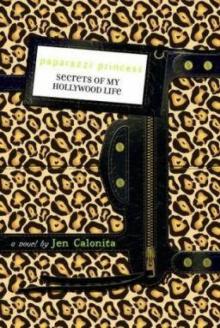 Paparazzi Princess
Paparazzi Princess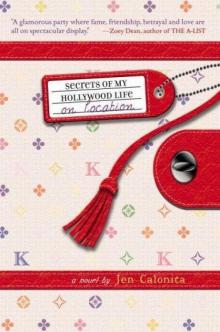 On Location
On Location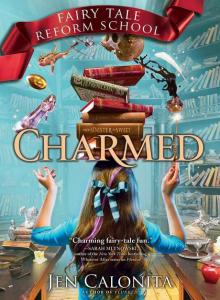 Charmed
Charmed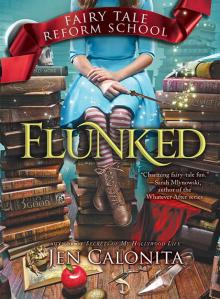 Flunked
Flunked Summer State of Mind
Summer State of Mind Belles
Belles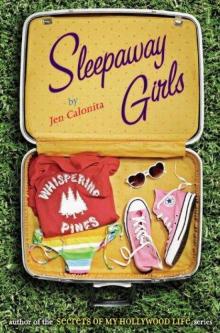 Sleepaway Girls
Sleepaway Girls Broadway Lights
Broadway Lights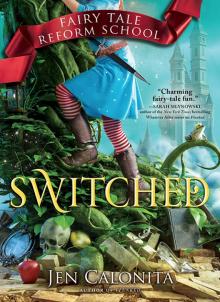 Switched
Switched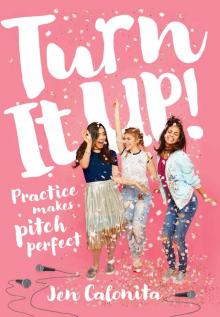 Turn It Up!
Turn It Up!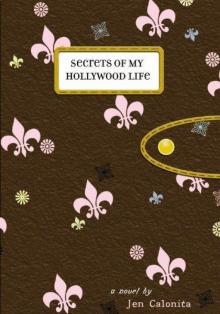 Secrets of My Hollywood Life
Secrets of My Hollywood Life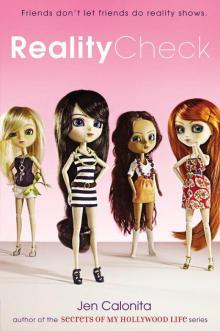 Reality Check
Reality Check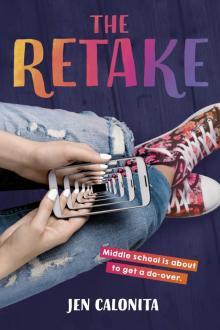 The Retake
The Retake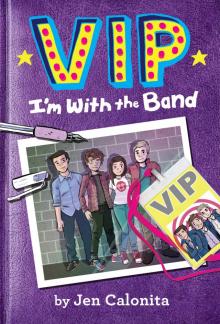 VIP: I'm With the Band
VIP: I'm With the Band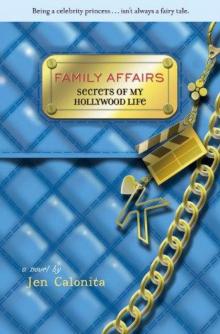 Family Affairs
Family Affairs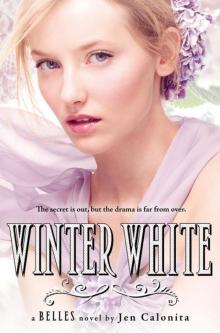 Winter White
Winter White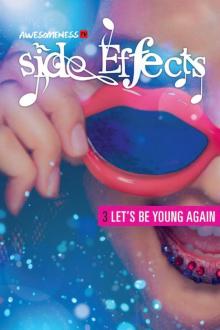 Side Effects
Side Effects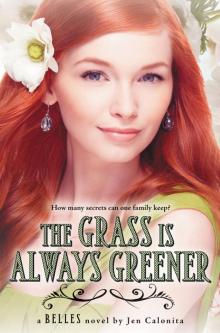 The Grass Is Always Greener
The Grass Is Always Greener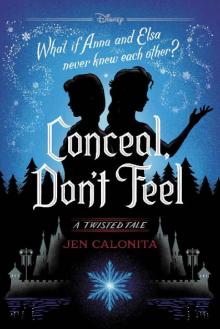 Frozen: Conceal, Don't Feel
Frozen: Conceal, Don't Feel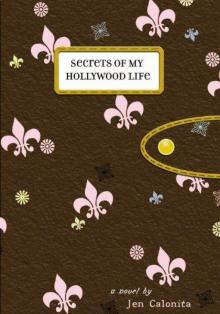 Secrets of My Hollywood Life #1: Secrets of My Hollywood Life
Secrets of My Hollywood Life #1: Secrets of My Hollywood Life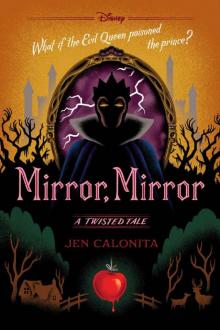 Mirror, Mirror
Mirror, Mirror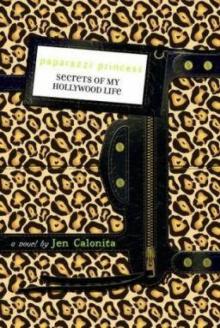 Secrets of My Hollywood Life #4: Paparazzi Princess
Secrets of My Hollywood Life #4: Paparazzi Princess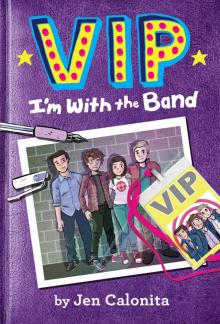 I'm With the Band
I'm With the Band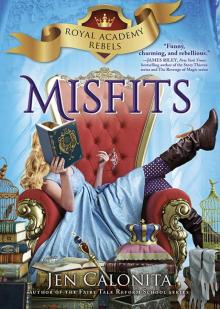 Misfits
Misfits Secrets of My Hollywood Life #5: Broadway Lights
Secrets of My Hollywood Life #5: Broadway Lights The Real Z
The Real Z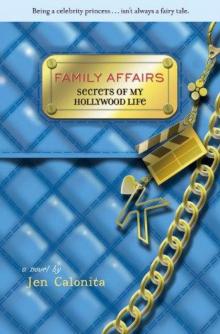 Secrets of My Hollywood Life #3: Family Affairs
Secrets of My Hollywood Life #3: Family Affairs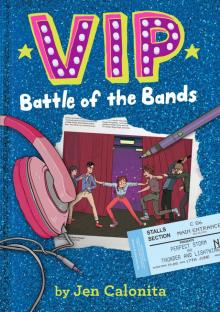 Battle of the Bands
Battle of the Bands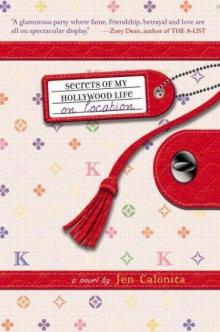 Secrets of My Hollywood Life #2: On Location
Secrets of My Hollywood Life #2: On Location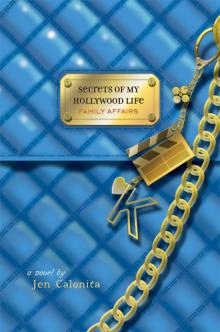 Secrets of My Hollywood Life: Family Affairs
Secrets of My Hollywood Life: Family Affairs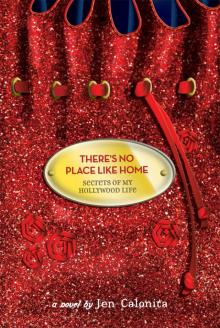 Secrets of My Hollywood Life: There’s No Place Like Home
Secrets of My Hollywood Life: There’s No Place Like Home